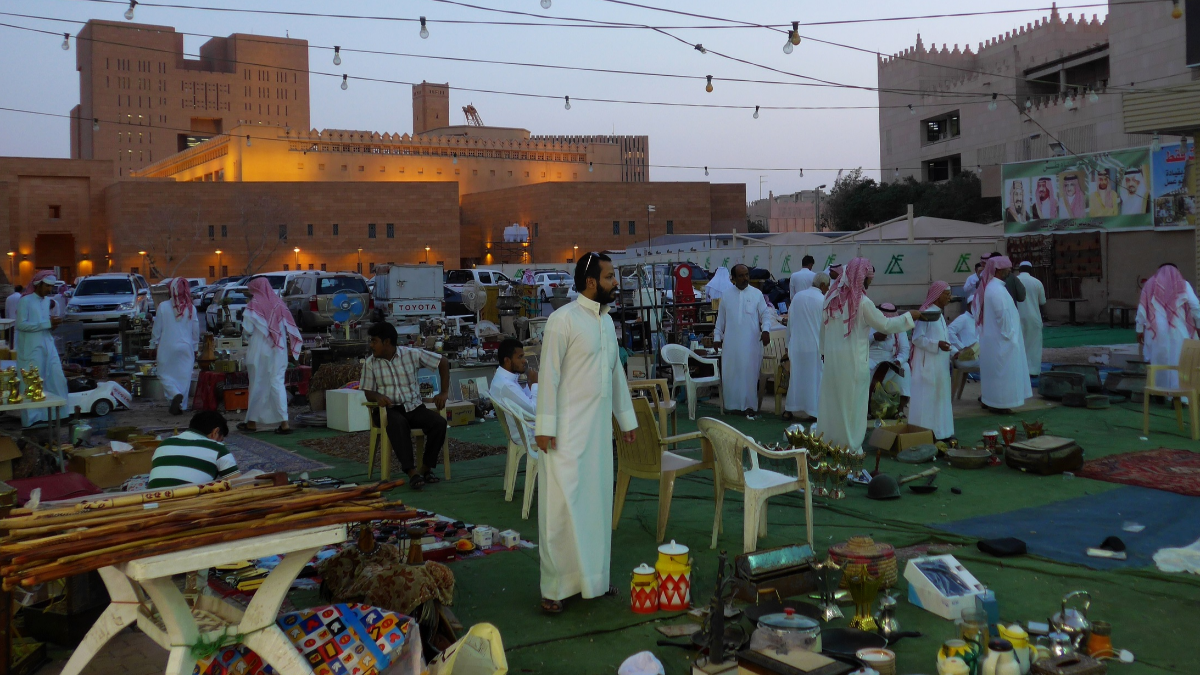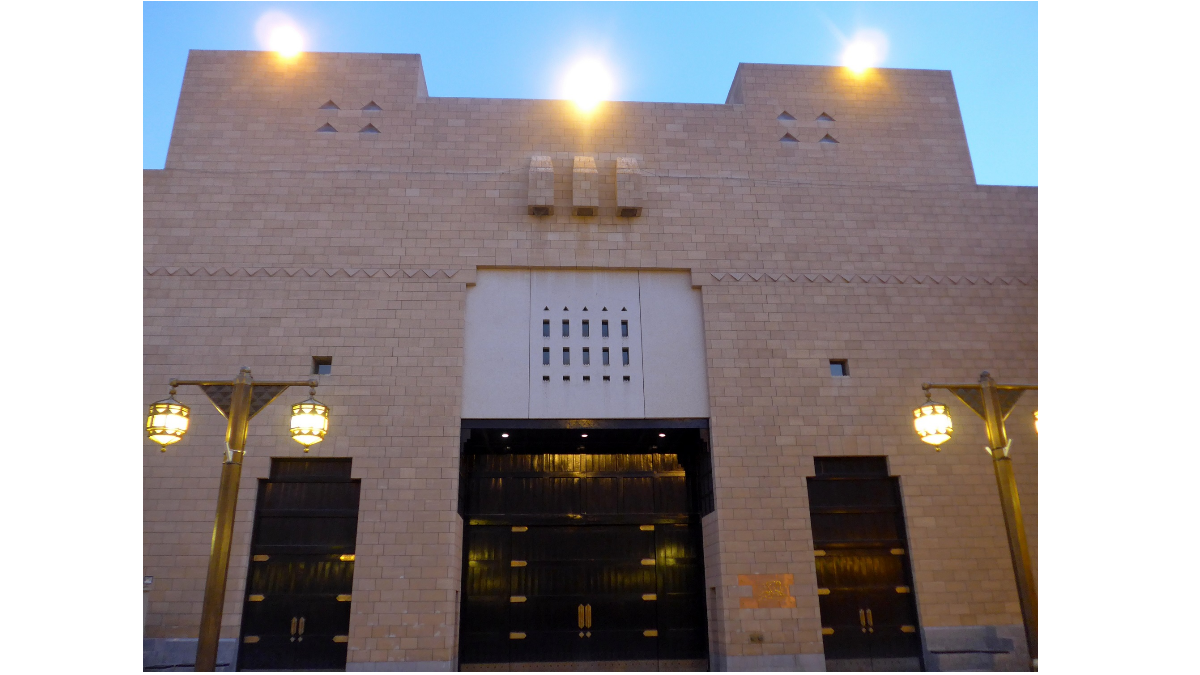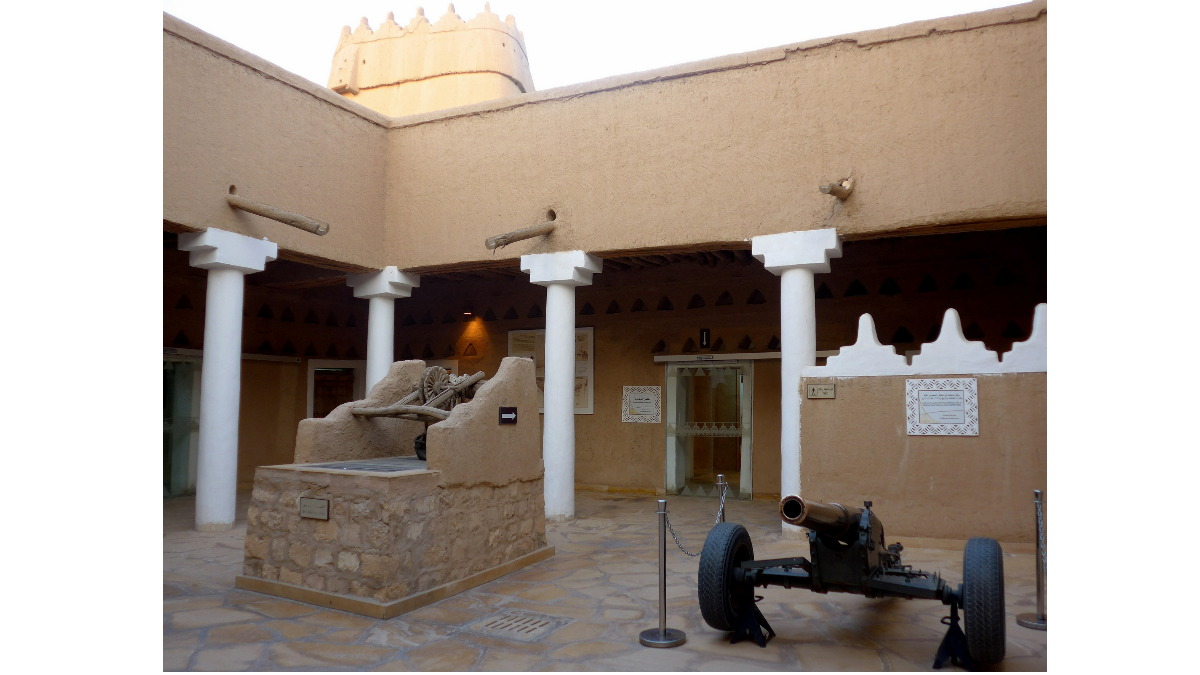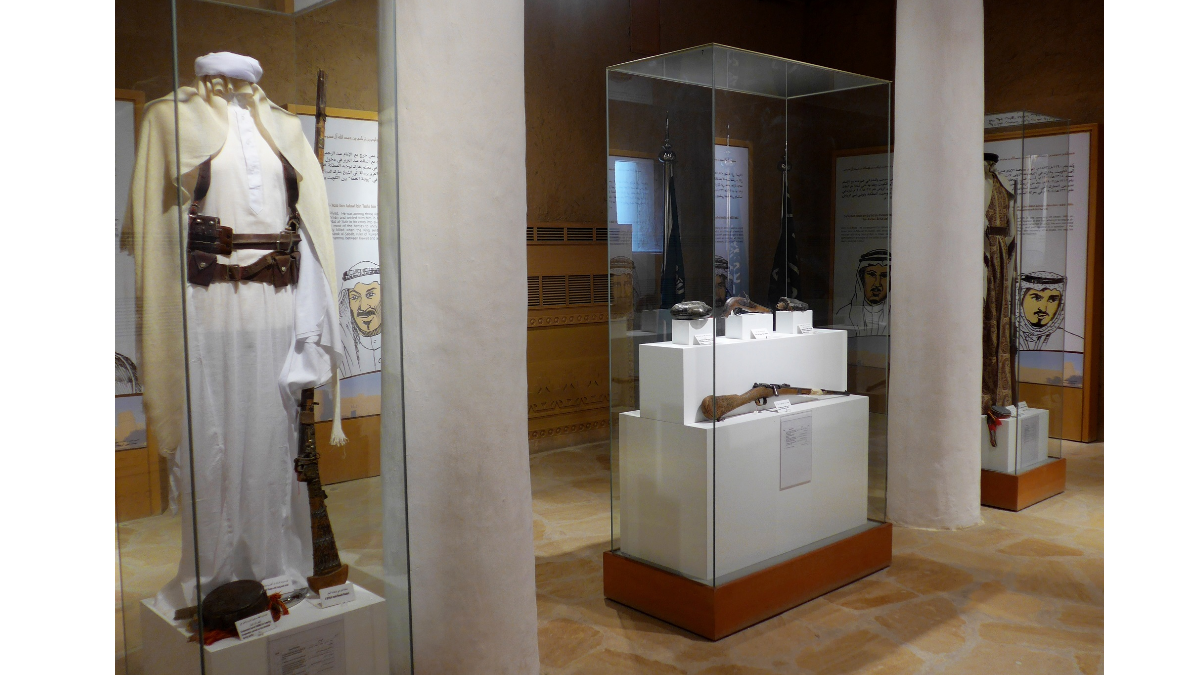
20220722
<La Vie Tang>An Exotic Touch Brought by Murabba Palace

In the city of Riyadh there is a popular attraction narrating a length of history about Saudi Arabia.
I left the bustling business center and followed my tour guide first to the Murabba Palace, also known as the Governor’s Palace, for which a 9-year construction project had been carried out, began in 1936 and finished in 1945. Used to be the palace of Ibn Saud, the founder of Saudi Arabia, it was named after its squared shape.
Through elaborate governance, an area of more than 300,000 square meters around the Murabba Palace has been developed into the King Abdulaziz Historical Centre, on the outskirts of which are green belts planted with palm tree bushes to moderate the hot desert climate as well as prevent the palace from sandstorms and strong winds. As my local friend tells, Riyadh’s sandstorm season comes in May every year. And when the sandstorm hits, roaring winds blow up the dust from the desert, blotting out the sky and the land abruptly The pitch-dark with lighting flashing and thunder rumbling terrifies you as if dragons fly low over the sea; the murky sky over the dark earth scares you as if the end of the world has come.
My tour guide says that evening presents the most beautiful moment of the historical center. When the darkness falls, the entire Murabba Palace is ablaze with light, together with the pleasant air temperature not as hot as the daytime, which attracts a lot of travelers to the center after sunset strolling under the charming lights. The historic center consists of six sections, and apart from the Murabba Palace there are the National Museum, the mosque, the library, the entertainment center and the King Abdulaziz Historical Research Centre. It has assembled Saudi culture, history, art and religion and also helps visitors to gain an understanding of the development of Saudi Arabia and Riyadh.
In memory of the founding King ibn Saud who led 63 warriors fighting a bloody battle, recaptured the Masmak Fort from the enemy to seize the control of Riyadh so then laid the foundation of statehood, the Murabba Palace held a grand celebration ceremony in January 2002. In the halls of the Murabba Palace, the descendants of 63 warriors in great white robe with edges embroidered in gold accepted King Fahd's honors on behalf of their ancestors. Every year, Saudi Arabia also celebrates its National Day at the Murabba Palace.
Except for the mosque, I followed the tour guide around every corner of the historic center and went to visit the Masmak Fort just dozens of meters away. During the period from 1856 till the construction of the Murabba Palace, the fort had originally served as the central organ of King Power, where the king dealt with all national affairs, regardless important or trivial. This Arabian-style fort clothed by an 18-inch thick loess wall is equipped with an 18-metre-high giant cylindrical watchtower standing at each corner, frightening enemies with its impregnable solid. In terms of the scale and architectural art, it appears even superior to other castles in the Arabian Peninsula and other parts of the Gulf. In Arabic, Masmark can be interpreted as ‘tall and thick buildings’. Under the afterglow of the sunset, the façade of the fort was illuminated to be more glittering and magnificent.
The site of the old palace has been listed into the World Cultural Heritage and has been transformed to a museum, which houses a great number of historical relics, light and heavy weapons that belong to the Saudi royal family, as well as history data recording the recapture of the fort in 1902. A vast expanse of crumbling walls and debris lying around the fort is the ruins of a partial original defensive walls and the fort; and now is officially encircled for reconstruction by the government. The ruins are expected to reopen in a few years when this attraction of Riyadh can provide substantial contents and additional information about Saudi history get improved.
Around the corner of the historic center is a busy shopping mall and urban markets, selling furniture, leather goods and souvenirs. The open market appears at night, where to collect antiques and second-hand goods. I also hung around the market, hoping to be surprised by some discoveries, but nothing was to my liking.
The tour guide also pointed to a square corner next to the mosque, telling that this is the execution area, the site to punish the prisoners, named as ‘Killing Square’ by some. Prisoners sentenced to beheading, including drug offenders, murderers and even guilty family members will be executed for their crimes in the execution site, with no exception. When the time comes, the executioner’s arm rises, the broadsword falls, and the prisoner’s head rolls on the ground. The thought of this horrible scene made my flesh creep and frightened me off. After throwing a few glances at the site, I left off the chilling place as quickly as possible.
Tang Yu Lap Hantec Honorary Chairman









Murabba Palace
Next Article
Extended Reading
<Arts Talk>How Wine Pairs with Truffles
BY Group Branding and Promotion FROM Hantec Group
"Yangzhou Impression" New Book Conference (Hangzhou Station) was held successfully
BY Group Branding and Promotion FROM Hantec Group
<About Stock Markets>CNY Markets Analysis Base on Theory of Yin Yang and Five Elements
BY Group Branding and Promotion FROM Hantec Group
Unit 4614, 46/F, COSCO Tower, 183 Queen’s Road Central, Hong Kong
(852) 2214 4288
No.76, South 2 Road, Baiziwan, Chaoyang District, Beijing
(86) 010-8515 1011
Unit 4614, 46/F, COSCO Tower, 183 Queen’s Road Central, Hong Kong
(852) 2545 5065 / (852) 2214 4188